Table of Contents
Vladimir Putin, the enigmatic leader of Russia, has wielded significant influence over both domestic and foreign affairs during his long tenure as president and prime minister. His policies have shaped the trajectory of the nation and have had far-reaching implications on the global stage. In this article, we will delve into the intricacies of Putin’s policies, examining their impact on Russia’s domestic landscape and the complex dynamics of its foreign relations.
Vladimir Putin, an enigmatic figure on the world stage, has been a central figure in Russian politics for decades, leaving an indelible mark on both domestic and foreign affairs. His leadership style, policies and decisions have played a pivotal role in shaping Russia’s trajectory and their effects resonate far beyond its borders. Let’s explore the multifaceted impact of Putin’s policies in greater detail:
1. Domestic Transformation: Under Putin’s leadership, Russia has undergone significant domestic transformation. His policies have influenced economic stability, social programs and infrastructure development. His focus on restoring Russia’s global status and economic stability, especially after the turbulent years following the dissolution of the Soviet Union, has earned him both support and criticism domestically.
2. Political Consolidation: Putin’s leadership has witnessed the consolidation of political power in Russia. His government has implemented policies that have strengthened the central authority and reduced the influence of regional leaders. This centralization has had profound implications for governance and political dynamics within the country.
3. Energy Dominance: Russia’s energy sector has been a cornerstone of its economy and foreign policy during Putin’s tenure. His policies have centered on harnessing the country’s vast energy resources, particularly oil and natural gas, to assert Russia’s influence in global energy markets and to secure economic stability at home.
4. Foreign Policy Realignment: Putin’s foreign policy decisions have shifted Russia’s stance in the international arena. His assertiveness in foreign affairs, including the annexation of Crimea in 2014 and support for separatist movements, has sparked tensions with Western nations. These geopolitical shifts have redefined Russia’s relationships with countries around the world.
5. Strategic Alliances: Putin has sought to strengthen Russia’s strategic alliances, particularly with nations that share similar geopolitical interests. Partnerships with countries like China have deepened economic ties and provided Russia with geopolitical leverage on the global stage.
6. Media and Information Control: Under Putin’s leadership, Russia has seen increased control over media and information. His government has enacted legislation to regulate online content and limit dissenting voices. This has raised concerns about press freedom and freedom of expression.
7. Legacy and Future Challenges: As Putin’s leadership continues, the legacy of his policies and the challenges they pose for Russia’s future remain subjects of debate and analysis. Questions about the sustainability of Russia’s economic model, the dynamics of its relationship with the West and the potential for political succession all loom large.
In sum, Vladimir Putin’s influence on Russia and the world stage is profound and multifaceted. His policies have shaped domestic politics, altered the trajectory of Russia’s foreign relations and left a lasting imprint on the nation’s identity. As he continues to navigate complex challenges both at home and abroad, the world watches closely to understand how his leadership will continue to impact global dynamics in the years to come.
Looking for more insights? You’ll find them right here in our extended coverage: The Russian World in Moscow’s Strategy
Economic Policy
Putin’s economic policies have played a pivotal role in Russia’s development. From the early 2000s, his government implemented market-oriented reforms, leading to economic growth and stability. Key components include energy sector control, tax reform and efforts to diversify the economy.
Vladimir Putin’s economic policies have indeed been instrumental in shaping Russia’s trajectory of development, especially since the early 2000s. His governance has seen a deliberate and strategic focus on market-oriented reforms that have significantly impacted the nation’s economic landscape.
One of the linchpins of Putin’s economic strategy has been the emphasis on the energy sector. Russia possesses vast reserves of natural resources, particularly in energy, making it a key player in global energy markets. Putin’s government has prioritized the control and efficient management of the energy sector, notably oil and gas, which has not only boosted domestic revenue but also elevated Russia’s standing in the international energy arena.
Furthermore, tax reform has been a pivotal component of Putin’s economic policies. Streamlining the tax system and implementing measures to improve tax collection have been crucial steps. These reforms aimed to create a business-friendly environment, attract investments and foster entrepreneurship. By reducing tax burdens for businesses and individuals, Putin sought to stimulate economic growth and encourage private sector participation.
Efforts to diversify the economy have been a significant undertaking. Historically dependent on energy exports, Russia has recognized the necessity to broaden its economic base. Diversification initiatives have focused on developing non-energy sectors such as technology, agriculture, manufacturing and services. This strategic move aims to reduce vulnerability to fluctuations in global energy prices and create a more balanced and sustainable economy.
In addition to these core economic strategies, Putin’s government has also aimed to bolster infrastructure development, invest in education and research and enhance innovation capabilities. These initiatives are designed to lay a solid foundation for long-term growth and competitiveness on the global stage.
However, it’s essential to note that Putin’s economic policies have faced criticism and challenges, both domestically and internationally. Concerns have been raised regarding political control over the economy, the need for more comprehensive reforms and fostering a more inclusive and diverse economic landscape that benefits all segments of society.
In summary, Putin’s economic policies have been integral to Russia’s growth and stability, focusing on energy sector control, tax reforms and economic diversification. While they have indeed led to significant advancements, the path forward requires a continued emphasis on reforms that promote sustainable development, innovation and inclusivity for a prosperous and thriving Russia.
Should you desire more in-depth information, it’s available for your perusal on this page: Timeline: Trump’s Foreign Policy Moments
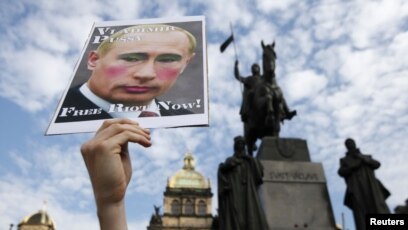
Political Control
Putin’s administration has been marked by a consolidation of political power. He has overseen changes to the political system, including the centralization of authority and the suppression of political opposition. Critics argue that these measures have weakened democratic institutions.
Putin’s administration has indeed been marked by a significant consolidation of political power. Over the years, he has orchestrated a series of changes to the political landscape of Russia, with far-reaching consequences. One of the most notable shifts has been the centralization of authority, as Putin has taken steps to strengthen the presidency and the executive branch, often at the expense of other branches of government. This centralization has allowed him to maintain a firm grip on the country’s decision-making processes and key institutions.
Simultaneously, there has been a notable suppression of political opposition. Critics argue that this suppression, through various means such as restrictive laws, media control and the targeting of opposition figures, has stifled the diversity of political voices in Russia. Many opposition leaders have faced legal challenges, exile or imprisonment, which has further limited the ability of opposition parties to effectively challenge Putin’s rule.
As a result of these measures, some experts and activists contend that democratic institutions in Russia have weakened significantly. The checks and balances that are essential for a healthy democracy have eroded, leading to concerns about the overall health of Russia’s political system. However, it’s important to note that perspectives on Putin’s administration are diverse, with some arguing that these measures were necessary for stability and economic growth, while others remain deeply critical of their impact on democracy and political pluralism in Russia. The ongoing debate over Putin’s legacy and the trajectory of Russian politics continues to shape domestic and international discussions.
Should you desire more in-depth information, it’s available for your perusal on this page: (U) Mapping Russian media network Media’s role in Russian foreign …

Social Policies
Putin’s government has implemented various social policies, including measures to boost the birthrate, support families and address public health issues. These policies aim to address demographic challenges and improve the well-being of Russian citizens.
Putin’s government has undertaken a multifaceted approach to governance by implementing a range of social policies that reflect its commitment to enhancing the lives of Russian citizens. Here’s a deeper exploration of these policies:
Demographic Challenges: Russia has been facing demographic challenges, including a declining population and an aging workforce. To counter this, Putin’s government has introduced measures to boost the birthrate. These include financial incentives, such as maternity and child support payments, to encourage families to have more children. These policies aim to reverse the population decline and ensure a more sustainable future for the country.
Family Support: Recognizing the importance of strong family units, the government has also implemented policies aimed at supporting families. These initiatives include subsidized housing for families with multiple children, extended parental leave options and childcare support. By easing the financial burden on families, these policies foster a healthier family environment and contribute to the overall well-being of Russian citizens.
Public Health Initiatives: Public health has been a priority in Putin’s governance. The government has launched initiatives to improve healthcare infrastructure, increase access to medical services and combat public health issues. These efforts aim to raise the overall health and life expectancy of Russian citizens, ensuring a better quality of life.
Education and Skills Development: Putin’s government has invested in education and skills development programs to equip the workforce with the tools needed for a competitive global economy. This includes reforms in the education system, vocational training and initiatives to enhance digital literacy. These policies not only improve citizens’ well-being but also boost the country’s economic prospects.
Poverty Alleviation: To address poverty and income inequality, the government has introduced targeted social assistance programs. These programs provide financial aid to vulnerable populations, helping to reduce poverty rates and improve the living conditions of those in need.
Infrastructure Development: Investments in infrastructure, including transportation, housing and urban development, have been central to Putin’s policies. These developments enhance the overall quality of life by improving living conditions, creating jobs and fostering economic growth.
National Security: A stable and secure nation is crucial for the well-being of its citizens. Putin’s government has pursued policies to strengthen national security, both domestically and internationally, to ensure the safety and protection of Russian citizens.
Economic Diversification: Policies aimed at diversifying the economy and reducing dependence on natural resources have been instrumental in ensuring long-term economic stability. Economic diversification creates new opportunities for citizens and reduces vulnerability to external economic fluctuations.
In conclusion, Putin’s government has adopted a comprehensive approach to governance that extends beyond addressing demographic challenges. These social policies reflect a commitment to improving the well-being of Russian citizens by focusing on family support, public health, education, poverty alleviation and infrastructure development. While these policies may have their critics and challenges, they represent a concerted effort to enhance the overall quality of life for the people of Russia.
To delve further into this matter, we encourage you to check out the additional resources provided here: GlobalTrends_2040.pdf
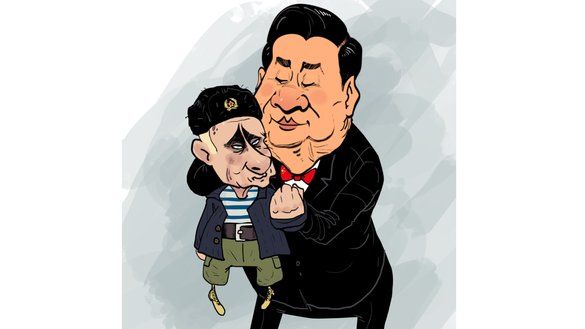
Nationalism
Putin’s leadership has seen a resurgence of Russian nationalism. The government has promoted patriotic education and emphasized Russia’s historical and cultural significance. This has been reflected in foreign policy decisions, such as the annexation of Crimea.
Putin’s leadership has indeed witnessed a resurgence of Russian nationalism that has had far-reaching effects on the nation’s identity and foreign policy. Under his guidance, the Russian government has implemented measures to foster a renewed sense of patriotism among its citizens. This includes initiatives to promote patriotic education, instilling a deep pride in Russia’s historical achievements and its rich cultural heritage.
This resurgence of nationalism has not remained confined to domestic policies alone. It has, rather significantly, spilled over into Russia’s foreign policy decisions. The annexation of Crimea in 2014 serves as a stark example of this phenomenon. Putin’s administration framed this action as a means of protecting the interests of Russian-speaking populations in Crimea and preserving Russia’s historical ties to the region. This move was met with both international condemnation and support from segments of the Russian population who saw it as a bold assertion of Russia’s power and territorial integrity.
Furthermore, the resurgence of Russian nationalism has had implications beyond territorial disputes. It has influenced Russia’s approach to international relations, emphasizing the protection of Russian interests abroad and the assertion of Russia’s influence on the global stage. This shift has created tensions with Western powers and has led to a more assertive Russian foreign policy in various regions, including Eastern Europe and the Middle East.
In sum, Putin’s leadership has ushered in an era of Russian nationalism, reshaping both the nation’s domestic identity and its foreign policy. The emphasis on patriotism and cultural significance has not only affected Russia’s relations with the world but has also had a profound impact on how Russians view themselves and their place in the world.
If you’d like to dive deeper into this subject, there’s more to discover on this page: Russia’s War in Ukraine: Identity, History, and Conflict

Geopolitical Ambitions
Putin’s foreign policy has been marked by efforts to reassert Russia as a global player. This has led to increased involvement in neighboring regions, such as Ukraine and Georgia and a more assertive stance in international conflicts.
Putin’s foreign policy, underpinned by a vision of restoring Russia’s global influence, has indeed shaped the nation’s international stance in significant ways. This proactive approach has reverberated not only in neighboring regions but also on the global stage, resulting in several key developments:
Neighboring Regions: Putin’s foreign policy places particular emphasis on Russia’s immediate neighbors. This focus has manifested in increased involvement in countries like Ukraine and Georgia. The annexation of Crimea in 2014 and the ongoing conflict in Eastern Ukraine exemplify Russia’s assertiveness in these regions. These actions have had far-reaching geopolitical implications, sparking international debates and sanctions while reshaping the political landscape in Eastern Europe.
Eurasian Economic Union (EAEU): Putin’s administration has championed the creation of the Eurasian Economic Union, which includes several former Soviet republics. This union aims to strengthen economic ties and promote integration among member states. By fostering closer economic cooperation, Russia seeks to reassert its influence in a region where it historically held sway.
Syria and the Middle East: Beyond its immediate neighborhood, Russia has taken on a more prominent role in global affairs, notably in the Middle East. The military intervention in Syria, starting in 2015, bolstered Russia’s position as a key player in the resolution of regional conflicts. It also enabled Russia to protect its strategic interests in the region, such as access to Mediterranean ports.
Multilateral Diplomacy: Putin’s foreign policy has been characterized by a renewed commitment to multilateral diplomacy. Russia’s active participation in organizations like the United Nations, BRICS (Brazil, Russia, India, China, South Africa) and the Shanghai Cooperation Organization (SCO) underscores its aspiration to be a global power broker.
Energy Diplomacy: Russia’s vast energy resources have played a pivotal role in its foreign policy strategy. Energy deals and partnerships with countries in Europe and Asia, such as the Nord Stream pipeline and energy agreements with China, have not only bolstered Russia’s economy but also its geopolitical influence.
Geopolitical Balance: Putin’s foreign policy has sought to restore what he views as a balance of power in international relations. Russia’s assertiveness is often seen as a response to perceived encroachments by Western powers, particularly NATO expansion and Western support for pro-democracy movements in Russia’s sphere of influence.
Complex Relations with the West: Putin’s foreign policy has led to complex relations with Western nations. While Russia seeks cooperation on various global challenges, such as counterterrorism and climate change, tensions persist over issues like Ukraine, election interference allegations and human rights concerns. These dynamics have contributed to a more adversarial tone in Russia-West relations.
In conclusion, Putin’s foreign policy is a multifaceted endeavor aimed at reestablishing Russia as a significant global player. While this approach has yielded strategic gains, it has also generated controversies and strained relations with Western nations. Russia’s assertive stance in neighboring regions and its active role in international conflicts reflect its commitment to advancing its interests and redefining its place in the global order. The trajectory of Russia’s foreign policy will continue to shape international dynamics for years to come.
To delve further into this matter, we encourage you to check out the additional resources provided here: Russia and India: A New Chapter – Carnegie Endowment for …
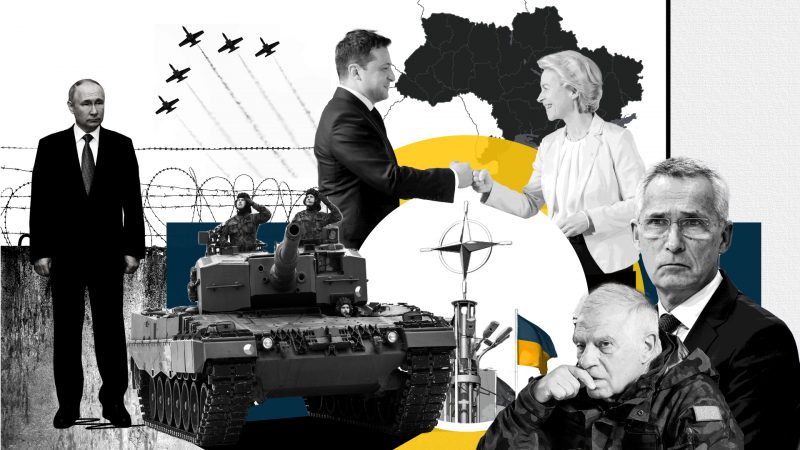
Energy Diplomacy
Russia’s vast energy resources, particularly natural gas and oil, have been used as diplomatic tools. The control of energy supplies to Europe has given Russia significant leverage in its relations with European countries.
“Russia’s abundant energy resources, notably its substantial reserves of natural gas and oil, have not only fueled its economic growth but have also become potent diplomatic instruments. The control and strategic management of energy supplies, especially to Europe, have provided Russia with a substantial source of geopolitical influence, shaping its relations with European nations in multifaceted ways.
Energy Diplomacy: Russia’s energy resources have played a pivotal role in shaping its foreign policy. By strategically controlling the flow of natural gas and oil to Europe, Russia has positioned itself as a key energy supplier, giving it considerable sway over the energy security of European countries. This energy diplomacy often takes the form of negotiations, agreements and occasionally, disputes, which can have far-reaching consequences for both Russia and its European partners.
Geopolitical Leverage: The control of energy supplies has afforded Russia substantial geopolitical leverage. European nations, heavily reliant on Russian energy, are mindful of potential disruptions in supply. This reliance has compelled many European countries to engage in diplomatic negotiations with Russia, sometimes influencing their stances on various political matters.
Economic Interdependence: The interdependence between Russia and Europe in the energy sector has created a delicate economic balance. Russia depends on European markets for its energy exports, while Europe relies on these supplies to meet its energy demands. This economic symbiosis has, in some instances, acted as a stabilizing factor in Russia’s relations with Europe, as both parties have a vested interest in maintaining a steady energy flow.
Energy Security Concerns: On the flip side, Europe’s reliance on Russian energy has raised concerns about energy security. It has prompted European countries to diversify their energy sources and invest in alternative energy solutions, such as renewable energy and liquefied natural gas (LNG) terminals, to reduce their dependence on Russia.
Political Tensions: The use of energy as a diplomatic tool has, at times, led to political tensions between Russia and European countries. Disputes over pricing, transit routes and political differences have disrupted energy supplies and have had ripple effects on diplomatic relations.
Global Energy Dynamics: Beyond Europe, Russia’s energy resources have a global impact. As one of the world’s largest energy exporters, Russia’s policies and actions in the energy sector can influence global energy prices and supply dynamics, affecting economies and political stability worldwide.
In conclusion, Russia’s vast energy resources, particularly its natural gas and oil reserves, have become integral to its diplomatic toolkit. The control of energy supplies has granted Russia significant influence over its relations with European countries, shaping the dynamics of diplomacy and economic cooperation. However, it has also raised complex issues related to energy security and geopolitical stability, highlighting the intricate interplay between energy, politics and international relations in the modern world.”
Should you desire more in-depth information, it’s available for your perusal on this page: The Russian World in Moscow’s Strategy
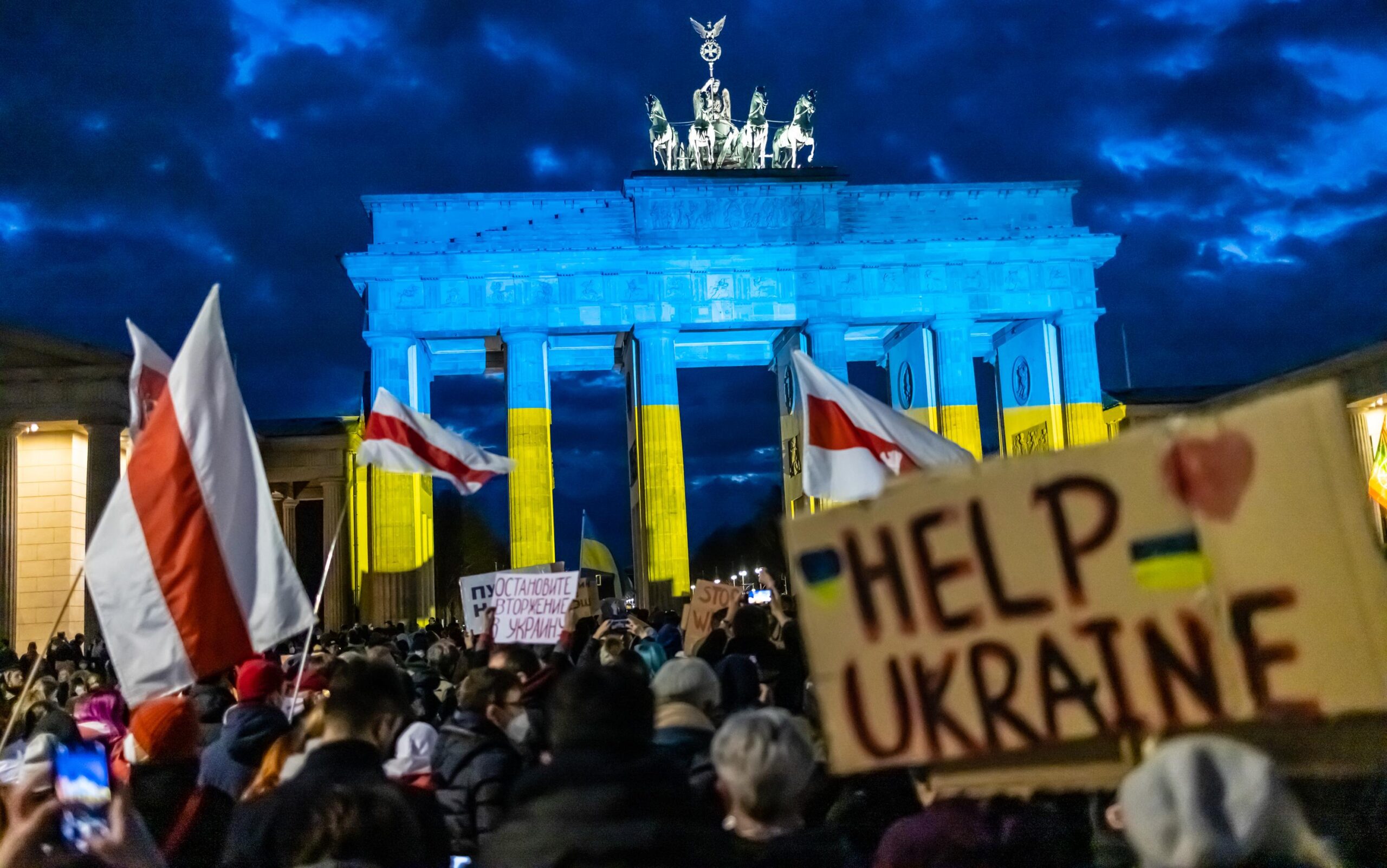
Cybersecurity and Information Warfare
The Putin government has been accused of engaging in cyberattacks and information warfare on the international stage. These actions have strained relations with Western nations and raised concerns about global cybersecurity.
The Putin government’s alleged engagement in cyberattacks and information warfare on the international stage represents a significant and evolving dimension of modern statecraft. These actions have far-reaching implications for global politics and security, leading to a complex web of consequences:
Escalation of Cyber Tensions: The accusations of Russian involvement in cyberattacks have contributed to the escalation of cyber tensions between Russia and Western nations. This ongoing tit-for-tat dynamic involves the development of increasingly sophisticated cyber capabilities by all parties, raising concerns of a digital arms race.
Erosion of Trust: These cyber activities have eroded trust between Russia and Western nations. Diplomatic efforts to address critical global issues, such as arms control, have been hampered by suspicions of cyber espionage and interference, making it challenging to find common ground.
Impact on Elections: Allegations of Russian interference in foreign elections have garnered significant attention. These claims have led to heightened concerns about the integrity of democratic processes and many Western nations have implemented countermeasures to safeguard their elections against foreign influence.
Private Sector Vulnerabilities: Cyberattacks attributed to Russian actors have targeted not only government institutions but also private sector entities. This has raised concerns about the vulnerability of critical infrastructure, intellectual property and commercial interests, prompting increased cybersecurity investments.
Global Cybersecurity Norms: Russia’s cyber activities have prompted discussions on the need for global cybersecurity norms and rules of engagement. The international community is grappling with defining acceptable behavior in cyberspace and establishing consequences for violations.
Bilateral and Multilateral Responses: Western nations, particularly the United States and its allies, have responded with sanctions, cyber countermeasures and diplomatic pressure. Additionally, international organizations like the United Nations have been called upon to address cyber threats and promote international cooperation in cyberspace.
Public Awareness: The allegations of Russian cyber interference have heightened public awareness about the vulnerability of digital infrastructure. This has led to increased demands for stronger cybersecurity measures at both the individual and institutional levels.
Countermeasures and Deterrence: The need for effective countermeasures and deterrence strategies against cyber threats has become a top priority for many nations. This includes investing in cybersecurity capabilities, sharing threat intelligence and developing strategies to deter future attacks.
In conclusion, the accusations of Russian involvement in cyberattacks and information warfare represent a complex and ongoing challenge to international security and stability. As technology continues to advance, addressing the multifaceted issue of cybersecurity and cyber conflict will require collaborative efforts from nations around the world to establish norms, enhance deterrence and safeguard the digital realm from malicious activities.
Explore this link for a more extensive examination of the topic: CSIS | Center for Strategic and International Studies
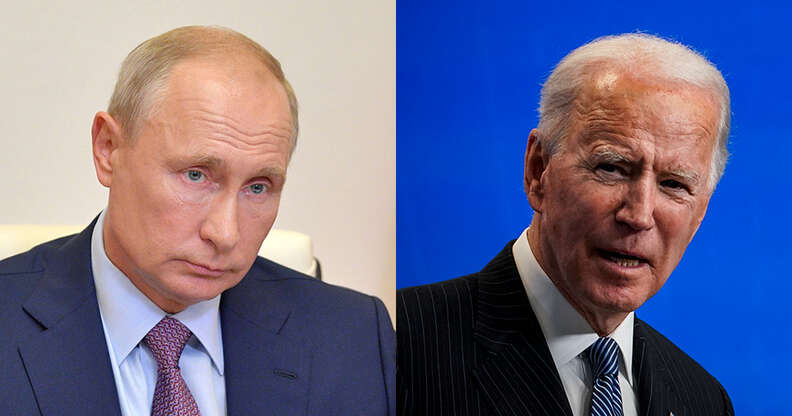
Alliances and Partnerships
Russia has sought to strengthen alliances with other global powers, particularly China. The evolving relationship between Russia and China has the potential to reshape the global balance of power.
Russia’s strategic approach to forging alliances with global powers, notably China, is a testament to its pursuit of a multi-faceted foreign policy. The evolving dynamic between Russia and China carries immense geopolitical implications, as it has the potential to not only reshape the global balance of power but also influence the course of international relations in the 21st century.
1. Geopolitical Alignment: Russia and China, as two of the world’s largest and most influential nations, have found common ground on various geopolitical issues. Their alignment on matters such as opposition to unilateralism, support for a multipolar world order and resistance to Western dominance has created a formidable counterbalance to the traditional power centers in the international arena.
2. Economic Cooperation: The economic ties between Russia and China have grown significantly in recent years. Bilateral trade agreements, energy partnerships and infrastructure projects like the Belt and Road Initiative have deepened their economic interdependence. This collaboration not only strengthens their respective economies but also challenges the economic dominance of Western nations.
3. Diplomatic Cooperation: Russia and China have cooperated diplomatically on several global challenges, including regional conflicts and initiatives such as the Shanghai Cooperation Organization (SCO) and BRICS. Their collective efforts have amplified their voices on the world stage, influencing international negotiations and shaping the course of global diplomacy.
4. Military Cooperation: Military exchanges, joint exercises and arms deals have expanded the defense ties between the two nations. These developments underscore their commitment to regional security and stability and have implications for global military alliances.
5. Technological Advancements: Russia and China are both investing heavily in technological advancements, including fields like artificial intelligence, space exploration and cyber capabilities. Their collaborative efforts in these areas challenge the technological dominance of Western nations and foster innovation on a global scale.
6. Energy Security: Russia’s vast energy resources and China’s growing energy needs have led to significant energy partnerships. This not only ensures Russia’s role as a crucial energy supplier but also bolsters China’s energy security.
The evolving relationship between Russia and China is not without its complexities and challenges. Both nations are known for their pragmatism in foreign affairs and their alliance is based on mutual interests rather than shared values. Yet, the strength of their cooperation and the depth of their engagement across various domains cannot be ignored.
As this partnership continues to evolve, it has the potential to influence the global order in profound ways. It challenges the traditional Western-centric view of international relations and introduces a new dynamic that demands careful consideration by policymakers and observers worldwide. In an era marked by geopolitical shifts, the Russia-China alliance stands as a defining force that will continue to shape the contours of global power and diplomacy for years to come.
Don’t stop here; you can continue your exploration by following this link for more details: Russia and India: A New Chapter – Carnegie Endowment for …
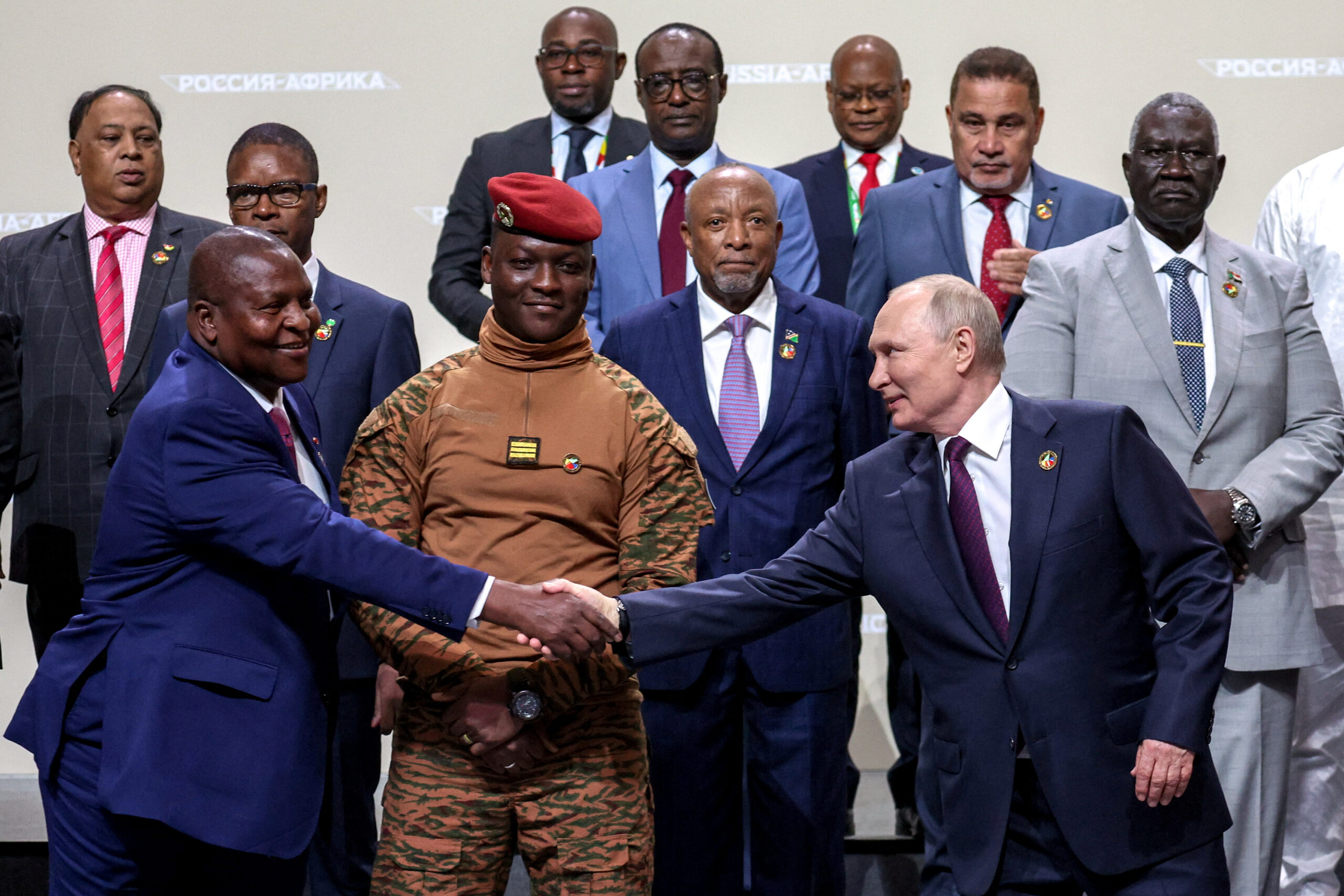
Putin’s policies, whether on the domestic front or in the realm of international relations, have been complex and multifaceted. They have elicited both praise and criticism, shaping the trajectory of Russia and influencing global geopolitics. Understanding these policies is crucial for comprehending the evolving role of Russia in the 21st century and its impact on the international stage.
Putin’s policies, characterized by their complexity and multifaceted nature, have indeed played a pivotal role in shaping the contemporary landscape of Russia and its position in global geopolitics. These policies span a wide spectrum, from domestic reforms to assertive international strategies and their impacts have been far-reaching, drawing both accolades and critique from various quarters.
In the domestic sphere, Putin’s policies have navigated Russia through significant transitions. His early tenure saw the stabilization of the Russian economy after a turbulent period in the 1990s. Economic reforms and prudent fiscal policies contributed to this stability, leading to a period of relative prosperity for many Russians. However, this period of economic growth was also marked by concerns over political centralization and diminishing political pluralism.
Putin’s leadership has been marked by efforts to consolidate power and strengthen the state’s role in various sectors, including media and civil society. Critics argue that these actions have curtailed political freedoms and freedom of the press, leading to concerns about democratic backsliding. However, supporters contend that these measures were necessary to maintain stability in a country that faced numerous internal and external challenges.
On the international front, Putin’s policies have asserted Russia’s influence on the global stage. The annexation of Crimea in 2014 and Russia’s involvement in Ukraine’s conflict have led to significant tensions with Western nations. These actions, seen by many as violations of international law, have prompted sanctions and strained diplomatic relations.
Simultaneously, Russia has pursued strategic partnerships with countries like China and expanded its influence in regions such as the Middle East. The Syrian conflict is a notable example where Russia’s involvement reshaped the dynamics of the conflict and bolstered its role as a key player in the region.
Putin’s policies have also focused on energy, with Russia maintaining its position as a major global energy exporter. The energy sector has been both a source of revenue and a tool of geopolitical influence, as Russia’s energy exports have been used to strengthen ties with various nations.
Understanding these policies is indeed crucial for comprehending Russia’s evolving role in the 21st century and its impact on the international stage. They underscore the complex interplay between domestic priorities, national identity and global ambitions. Whether it’s the pursuit of economic stability, the assertion of national sovereignty or the pursuit of strategic interests, Putin’s policies continue to shape the trajectory of Russia and its relationships with other nations. They serve as a reminder of the intricate balance that leaders must strike when navigating the complex landscape of domestic and international politics in our interconnected world.
Should you desire more in-depth information, it’s available for your perusal on this page: Russia and India: A New Chapter – Carnegie Endowment for …
More links
Looking for more insights? You’ll find them right here in our extended coverage: The Russian World in Moscow’s Strategy
